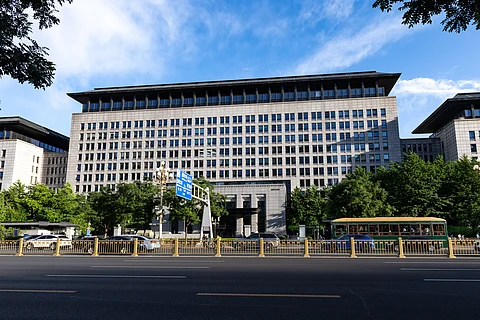

China on Monday accused the United States of undermining ongoing trade negotiations following a U.S. government advisory against the use of Chinese-made AI chips. The warning was issued just two days after both nations agreed to reduce tariffs as part of a 90-day pause in their prolonged economic trade dispute.
In a statement issued by China’s Ministry of Commerce, Beijing called on the Trump administration to “correct its mistakes.” The ministry added that the U.S. advisory was damaging Chinese commercial interests and warned that China would take reciprocal steps to defend its own.
The controversy stems from a warning issued last Tuesday by the U.S. Commerce Department’s Bureau of Industry and Security. The notice advised American industries against using “PRC (People’s Republic of China) advanced-computing ICs, including specific Huawei Ascend chips.” The advisory claimed that such chips were likely manufactured in violation of export controls imposed by Washington.
Beijing has expressed concern that if Washington maintains this stance, it could jeopardize the fragile momentum of current trade discussions.
Last week, the Trump administration agreed to a 90-day truce, reducing tariffs on Chinese goods from 145% to 30%. In return, China lowered its tariffs on U.S. products from 125% to 10%. However, no comprehensive trade agreement was reached. Unless both sides agree to extend the pause, tariffs could be reinstated once the 90-day window expires—particularly if diplomatic relations deteriorate further.
Since the beginning of President Donald Trump’s first term, the U.S. has taken numerous steps to limit China's advancement in semiconductor technology. These actions included blocking the sale of Dutch chip manufacturing equipment to China and halting semiconductor shipments to Chinese tech giant Huawei from global suppliers.
Under former President Joe Biden, the U.S. expanded those efforts, implementing sweeping export controls to prevent China from acquiring semiconductors made using U.S. technology. Biden's administration also added numerous Chinese chipmakers to its trade blacklist.
Despite these restrictions, China’s semiconductor industry has continued to make progress. Last year, Chinese firms achieved two major milestones: the development of the world’s first 16-bit quantum bit semiconductor microprocessor, and the mass production of the first 28nm embedded RRAM image-quality adjustment chip.